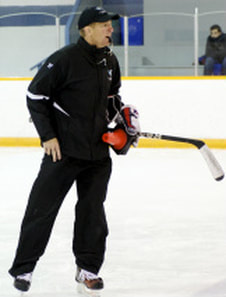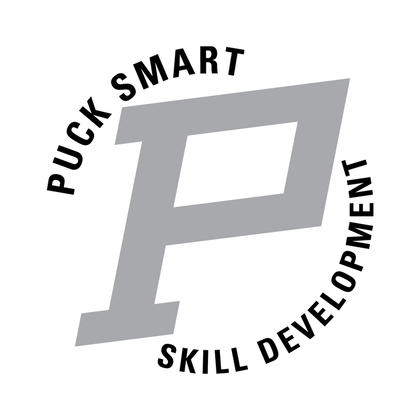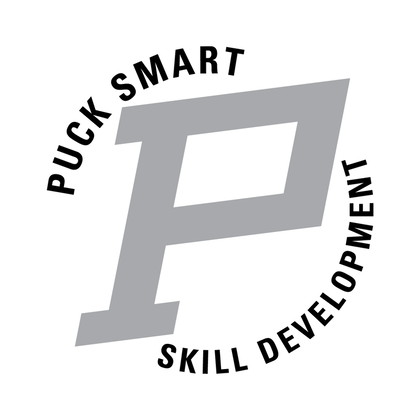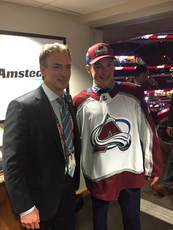Puck Smart Inc.
|
Instagram: @Puck_Smart |
|
|
|
Puck Smart Spring Hockey Skills Development
If Interested: Click the Registration tab located above
Your browser does not support viewing this document. Click here to download the document.

Instructor: Kevin Yellowaga - Brooks Bandits Skills Development Coach
Brooks Bandits Coaching Staff: http://www.brooksbandits.ca/team/staff/kevin-yellowaga.html
Kevin has developed an exciting and dynamic hockey skills training curriculum that will challenge and inspire your player to his/her best game. Puck Smart Hockey Skills Camps have been in operation since 1999. Like any successful business we have continued to learn from other leaders in the hockey industry, other nations and how they use the long term athlete development plan to achieve success, we also attend top clinics/conferences, analyze video for Jr. A and Pro players and we are open to mentoring which has helped us in being considered one of the leading hockey development camps in Western Canada. Our approach is unique because of the knowledge we have and the ability we have to transfer this knowledge to the player. More info: http://pucksmart.com/about-us.html
Kevin Yellowaga is the Skills Coach for the Brooks Bandits over the past 8 seasons and once again for the 2020-21 season:
------ RBC CUP finalists 2016, Western Canada Cup Champions 2017, RBC Cup Finalists 2017 --------
----- RBC CUP Champions 2013 and 2019 Jr. A National Champions!!!! ------------
Brooks Bandits Coaching Staff: http://www.brooksbandits.ca/team/staff/kevin-yellowaga.html
Kevin has developed an exciting and dynamic hockey skills training curriculum that will challenge and inspire your player to his/her best game. Puck Smart Hockey Skills Camps have been in operation since 1999. Like any successful business we have continued to learn from other leaders in the hockey industry, other nations and how they use the long term athlete development plan to achieve success, we also attend top clinics/conferences, analyze video for Jr. A and Pro players and we are open to mentoring which has helped us in being considered one of the leading hockey development camps in Western Canada. Our approach is unique because of the knowledge we have and the ability we have to transfer this knowledge to the player. More info: http://pucksmart.com/about-us.html
Kevin Yellowaga is the Skills Coach for the Brooks Bandits over the past 8 seasons and once again for the 2020-21 season:
------ RBC CUP finalists 2016, Western Canada Cup Champions 2017, RBC Cup Finalists 2017 --------
----- RBC CUP Champions 2013 and 2019 Jr. A National Champions!!!! ------------
- Bachelor of Education
- Brooks Bandits Skills Coach 2012 - present
- Hockey Skills Instructor and Coach Mentor 2008-present
- Hockey Canada Skills Academy Operator 2000-2007
- Alberta Hockey Leader Award 2004
Spring Hockey
Skill Development Model and Expectations
Please Contact Kevin Yellowaga directly before registering for Spring Hockey Skill Development
Starting at the base of the development pyramid, we will work on the individualized skills needed to play at the elite level. A primary focus on the technical skills of skating, shooting, passing and puck control fundamentals will form the foundation as we advance up the development pyramid. These basic skills will then be applied in tactical drills and situations used in a game to gain an advantage or take away an advantage from an opponent. It’s important as the players progress from skills to tactics that they understand why they are using that skill in that situation which will then allow them to focus on the details, habits and execution that will benefit them in a game. I will also do my best to build in a component of fun as we strive for and attain new skills and performance levels.
The skills will progress and students will be challenged to come out of their comfort zone at each level. Building a strong motor program in all skills at the base level of the program will allow for greater success as the program progresses and also better execution when under pressure in games. We understand that not all players will have the same abilities but that all will have the same opportunity to progress and challenge themselves within all the skill sets the program offers. Students are encouraged to focus on their own development by not worrying about how they compare to others. Students need to challenge themselves by making their strengths even stronger while paying attention to their weaknesses .
In order for players to succeed at their own level of development skill teaching will usually progress in four ways. We spend the majority of time in stages 1 and 2 before we attempt to build in components of speed and knowledge “what, how, why and when.”:
1. Stationary - Demonstrate the skill/control without movement; low level of challenge
2. In Motion - Demonstrate the skill/control with slower movement; mid level of challenge
3. Game Speed - Demonstrate the skill/control with faster movement, high level of challenge
4. Higher Intellectual/Chaos - Demonstrate the skill/control with exceptional speed; expert level of challenge
Puck Smart Leadership Expectations...“Discipline yourself and others won’t need to.” - John Wooden
1. The student is on time, positive, listens well and helps without having to be asked.
2. The student understands the importance of ethics in sport, respecting the rights of all participants, helps everyone in the program feel worthy, and can build/encourage mutual support and respect with other students and instructors.
The skills will progress and students will be challenged to come out of their comfort zone at each level. Building a strong motor program in all skills at the base level of the program will allow for greater success as the program progresses and also better execution when under pressure in games. We understand that not all players will have the same abilities but that all will have the same opportunity to progress and challenge themselves within all the skill sets the program offers. Students are encouraged to focus on their own development by not worrying about how they compare to others. Students need to challenge themselves by making their strengths even stronger while paying attention to their weaknesses .
In order for players to succeed at their own level of development skill teaching will usually progress in four ways. We spend the majority of time in stages 1 and 2 before we attempt to build in components of speed and knowledge “what, how, why and when.”:
1. Stationary - Demonstrate the skill/control without movement; low level of challenge
2. In Motion - Demonstrate the skill/control with slower movement; mid level of challenge
3. Game Speed - Demonstrate the skill/control with faster movement, high level of challenge
4. Higher Intellectual/Chaos - Demonstrate the skill/control with exceptional speed; expert level of challenge
Puck Smart Leadership Expectations...“Discipline yourself and others won’t need to.” - John Wooden
1. The student is on time, positive, listens well and helps without having to be asked.
2. The student understands the importance of ethics in sport, respecting the rights of all participants, helps everyone in the program feel worthy, and can build/encourage mutual support and respect with other students and instructors.
Program content
- Skill Development: A primary focus of the program will be on the technical skills of skating, shooting, passing and puck control fundamentals will form the foundation as we progress to advanced skill development as we move up the development pyramid.
- Skating: changes of speed, body position/stick position, cross overs, long strides, half strides, edging, starts, turns/punch cuts, starts….
- Puck Control: Range (this is huge), 360 all sides of your body control, Deception (peels, snaps), puck protection (one hand, 10 and 2 *euro’s, in traffic), board play protection (trap doors and attacking seams), 1 on 1 moves, under handling, multiple pucks
- Passing: Range, 360 passing on all sides of your body, Deception (whether it be with fakes, push/pull, look off’s, delay’s, changing angles, indirect passes, while moving backwards, receive skills, soft catches, dynamic catches, catch from behind, pass behind your back, one touch passes, cross, drops, timing/support, snap passes, slap passes, saucer passes, give go’s …
- Shooting: hook/bend, weight transfer, inside leg, outside leg, down pressure, in stride, pull and shoot, snap, all directions, backhand, backhand snap, accuracy (heights, blade angles), scoring theory, placement (off heel, off toe), catch and shoot, catch forehand shoot backhand, shoot in stride, deceptive shooting (freeze, throw, off the stickhandle), change angles, in tight scoring (quick up, wraps, dekes), net front (deflections/rebounds), finding space *pop ups, attacking seams, 2 on 1’s (look shot pass, look pass shot)…
- Situational Game Like Skills: Situational Game Awareness will be a component that we will look at adding once we have a strong base of technical skill development in place. The intent to provide players with an understanding and awareness on how each on ice exercise can provide them with increased in-game performance if executed properly.
Feedback
Feedback and correction during sessions will be a priority as we seek to challenge players in a supportive and encouraging environment. We will provide an inclusive environment that constantly pushes each individual toward their own personal potential.



